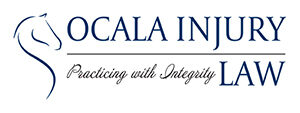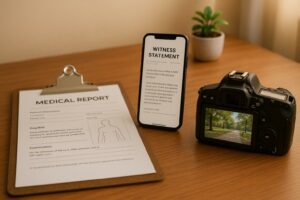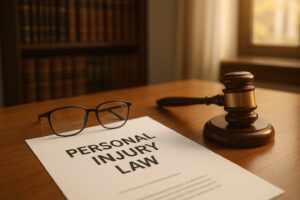If you’re filing a personal injury claim, avoiding key mistakes can make or break your case. Here are five common errors and how to steer clear of them:
- Delayed Medical Care: Waiting to see a doctor can weaken your claim and health.
- Poor Documentation: Lack of evidence makes proving damages harder.
- Giving Premature Statements: Insurers might twist your words to reduce payouts.
- Accepting Early Settlements: Initial offers often undervalue your claim.
- Social Media Activity: Posts can be used against you in court.
Quick Tip: Always seek immediate medical attention, document everything, and consult an attorney before speaking with insurers or accepting any offers.
These steps can help protect your rights and maximize your compensation.
1. Not Getting Immediate Medical Care
Delaying medical treatment after an accident can seriously hurt your personal injury claim. Even if you feel fine, get checked out right away. It’s not just about your health – it also strengthens your claim.
Why Timing Is Critical
In Florida, you must see a doctor within 14 days of an accident to qualify for Personal Injury Protection (PIP) benefits. This isn’t just a legal rule – it’s also important for catching injuries early.
Here’s why acting fast matters:
| Reason | Impact on Health | Impact on Claim |
|---|---|---|
| Hidden Injuries | Adrenaline can mask serious issues | Creates a documented injury timeline |
| Internal Damage | Early care prevents complications | Establishes clear causation |
| Concussion Signs | Avoids long-term cognitive problems | Shows the severity of the impact |
| Soft Tissue Injuries | Speeds up recovery | Proves immediate onset |
"One of the main reasons why immediate medical treatment is crucial after an accident is because shock and adrenaline can mask pain and injuries." – Lowman Law Firm
Getting medical attention promptly not only safeguards your health but also provides crucial evidence for your claim.
The Role of Medical Records
Medical records are the backbone of any personal injury claim. They link your injuries directly to the accident and demonstrate their severity.
Key documents include: emergency room records, diagnostic test results, treatment plans, follow-up notes, and physical therapy records.
"Medical records can be the cornerstone of a successful personal injury claim. They provide a written account of the injuries you’ve sustained and can be instrumental in painting a clear picture of the impact on your life." – Greene Broillet & Wheeler, LLP
Insurance companies often question delays in treatment. They might argue:
- Your injuries weren’t serious enough for immediate care
- The injuries happened after the accident
- Your condition worsened because you didn’t seek timely help
To protect your claim, keep detailed records of your symptoms, treatments, and how the injuries affect your daily life.
2. Giving Statements to Insurance Companies
After an accident, insurance adjusters often move quickly to get your recorded statement. While they may seem friendly, their primary goal is to protect the insurance company’s interests – not yours.
Insurance Company Tactics
Insurance adjusters are skilled at using your own words to minimize payouts. Here are some ways they might do this:
- Asking leading questions designed to suggest you share fault for the accident
- Pushing for details about your injuries before you’ve received a full medical evaluation, potentially limiting future coverage
- Using casual comments like "I’m fine" to downplay the severity of your injuries
- Obtaining recorded statements before you’ve consulted an attorney, turning your words into binding evidence
For example, in one case, a driver named John gave a recorded statement that resulted in him being assigned 30% of the fault. This significantly reduced his compensation.
"Insurance companies will analyze and comb over every word to find something to use against you to deny liability – in part or completely. Nothing good can come from making a recorded statement."
– The Studstill Firm
These tactics highlight the importance of handling conversations with adjusters carefully.
How to Talk to Insurance Companies
To protect yourself, keep these tips in mind when dealing with insurance adjusters:
- Avoid saying phrases like "I’m fine." Instead, say "I’m recovering" or steer the conversation elsewhere.
- Politely decline to provide a recorded statement unless you’ve consulted an attorney.
- Whenever possible, request that communications be handled in writing.
Statistics show that fewer than 1% of clients give recorded statements when represented by experienced personal injury attorneys.
"The entire purpose behind an insurer’s request for a recorded statement is to try to box you into admissions, inconsistencies, or responses that can be used to challenge or diminish your injury claims later. It’s not truly about ‘getting your side of the story’ from an objective perspective."
– Husain Law and Associates
If you’re pressured for a recorded statement, you can respond with something like:
"Thank you for your request, but I am not comfortable providing a recorded statement without legal counsel. I’d be happy to provide you with any documentation or information in writing to help with your evaluation of my claim."
3. Poor Evidence Collection
Act quickly to gather and preserve evidence – it’s essential for protecting your claim.
What Evidence to Collect
The right evidence can make or break your case. Here’s what you should focus on collecting:
- Photos of the accident scene: Include damage, injuries, skid marks, debris, and road conditions.
- Surveillance footage: Check for nearby cameras that may have recorded the incident.
- Damaged items: Keep clothing or personal belongings affected by the accident.
- Official reports: Obtain police and accident reports.
- Medical records: Save everything – surgical reports, MRIs, X-rays, blood tests, prescriptions, treatment dates, and discharge summaries.
- Employment records: Pay stubs and employment documentation can prove lost wages.
- Receipts: Keep receipts for any accident-related expenses.
- Witness information: Collect names, contact details, written statements, or video recordings.
"Various types of evidence can be used to support a personal injury claim, and the best evidence will vary depending on the specific circumstances of each case."
– Accident Claims Blawg
Properly collecting and protecting this evidence helps maintain its reliability for your claim.
How to Store Evidence
Once you’ve gathered evidence, storing it correctly is just as important. Poor storage could weaken your case.
"Without solid evidence, the chances of recovering adequate compensation for your injuries could significantly diminish."
– The Law Place
| Evidence Type | Storage Method | Duration |
|---|---|---|
| Physical Evidence | In a clean, dry container at room temperature | Until case conclusion |
| Photos & Videos | Digital backup with secure cloud storage | Until case conclusion |
| Medical Records | Both physical and digital copies | Indefinitely |
| Witness Statements | Sealed envelope and digital backup | Until case conclusion |
| Accident Reports | Original copies in protective sleeves | Indefinitely |
Tips for Digital Evidence:
- Create multiple backups.
- Use encrypted cloud storage.
- Keep original files untouched.
- Organize files chronologically.
Tips for Physical Evidence:
- Store items in a clean, dry place away from sunlight.
- Minimize handling to avoid damage.
- Document the chain of custody.
- Take photos of items before storing them.
Lastly, keep a daily journal to document pain levels, medical visits, how the accident affects your daily activities, emotional struggles, and any missed work. This personal account can strengthen your claim even further.
sbb-itb-68ed374
4. Taking the First Settlement Offer
After gathering key evidence and medical records, one common mistake is agreeing to a settlement too soon.
Why Early Offers Are Often Inadequate
Insurance companies often push quick settlements to save money. These early offers typically fall short of covering all damages and future expenses.
Here’s how they operate:
- They take advantage of financial pressure.
- They downplay the true value of your claim.
- They settle before the full extent of injuries is clear.
- They aim to avoid the risk of litigation.
"By settling a personal injury claim quickly, an insurance company can get away with paying a lower settlement that does not account for the full impact of the injury." – Pendas Law Firm
Given these tactics, it’s essential to evaluate your damages thoroughly before agreeing to any settlement.
Calculating Total Damages
A complete assessment of damages relies on the evidence and documentation you’ve already collected.
| Damage Category | What to Include | Documentation Needed |
|---|---|---|
| Medical Costs | Current treatment, future care, rehabilitation | Medical bills, treatment plans, specialist opinions |
| Lost Income | Missed work, reduced earning capacity | Pay stubs, employment records, expert testimony |
| Property Damage | Repairs, replacements | Repair estimates, receipts |
| Non-Economic Losses | Pain and suffering, emotional distress | Medical records, personal injury journal |
When evaluating a settlement, consider these key factors:
1. Maximum Medical Improvement (MMI)
Before accepting any offer, wait until you’ve reached MMI. This ensures you understand your long-term medical needs and recovery prognosis.
2. Future Expenses
Account for ongoing medical care, physical therapy, assistive equipment, home modifications, and future lost wages.
3. Non-Economic Damages
In Florida, non-economic damages are calculated using methods like the multiplier method (1.5 to 5 times special damages) or the daily rate method. Additionally, the state’s pure comparative negligence rule may adjust settlements based on fault percentages.
5. Social Media Mistakes
Your social media activity can seriously impact your personal injury claim. Insurance companies and defense attorneys often examine online profiles to find anything that might weaken your case.
How Social Media Can Hurt Your Claim
Even seemingly harmless posts can cause problems. Defense teams look at status updates, photos, videos, location check-ins, comments, and tagged posts to challenge your claims. For instance, writing "feeling better!" could be used to downplay your injuries, and photos of you engaging in physical activities or attending events might be used to argue that your reported limitations aren’t as severe as claimed.
Here’s a real-world example: A woman filed for compensation after a slip-and-fall accident, citing severe back injuries. However, her social media posts showing a beach vacation were used by the defense to argue she was exaggerating. This led to a much lower settlement offer. To avoid such issues, follow these precautions.
Steps to Protect Your Claim on Social Media
Take these steps immediately to safeguard your case:
-
Secure Your Accounts
- Switch all social media profiles to private.
- Turn off location-sharing features.
- Go through old posts and adjust privacy settings.
- Reject friend requests from people you don’t know.
-
Be Careful About What You Share
- Don’t post about your accident or injuries.
- Avoid mentioning anything about legal proceedings.
- Ask friends and family not to post or tag you in anything related to your situation.
- Stay away from commenting on posts that could be linked to your case.
Remember, social media posts can easily be taken out of context. What looks like a happy moment in a photo could be twisted to imply you’ve fully recovered.
Important Note: Do not delete any posts after your accident. Deleting content could be interpreted as trying to hide evidence, which might hurt your credibility. Always consult your attorney for advice on managing your social media during the claims process.
Conclusion: Steps to Protect Your Claim
Key Takeaways
To strengthen your claim, taking the right steps early on is essential. Here are some critical actions to focus on:
- Organize Evidence: Gather and keep detailed records of the accident, including photos, witness information, and any other relevant documentation. This helps establish a strong case foundation.
- Prioritize Medical Care: Get medical attention immediately and stick to your doctor’s treatment plan. Your medical records will serve as proof of your injuries and their effects.
- Handle Communications Carefully: Insurance adjusters may try to minimize your settlement. Avoid giving statements without consulting a legal expert.
Why Legal Support Matters
Having professional legal help can make a big difference in your claim’s outcome. Attorney Alida "Ali" Catherine Darias at Ocala Injury Law is dedicated to safeguarding clients’ rights throughout the process. Here’s how legal representation can benefit you:
- Experienced Advice: A skilled personal injury attorney ensures your claim is handled properly and that you don’t settle for less than you deserve.
- Focused Representation: Let your attorney deal with insurance companies and negotiations so you can concentrate on recovering.
- No Financial Risk: Many firms, including Ocala Injury Law, offer free consultations and work on a contingency fee basis. This means you only pay if your case is resolved in your favor.




